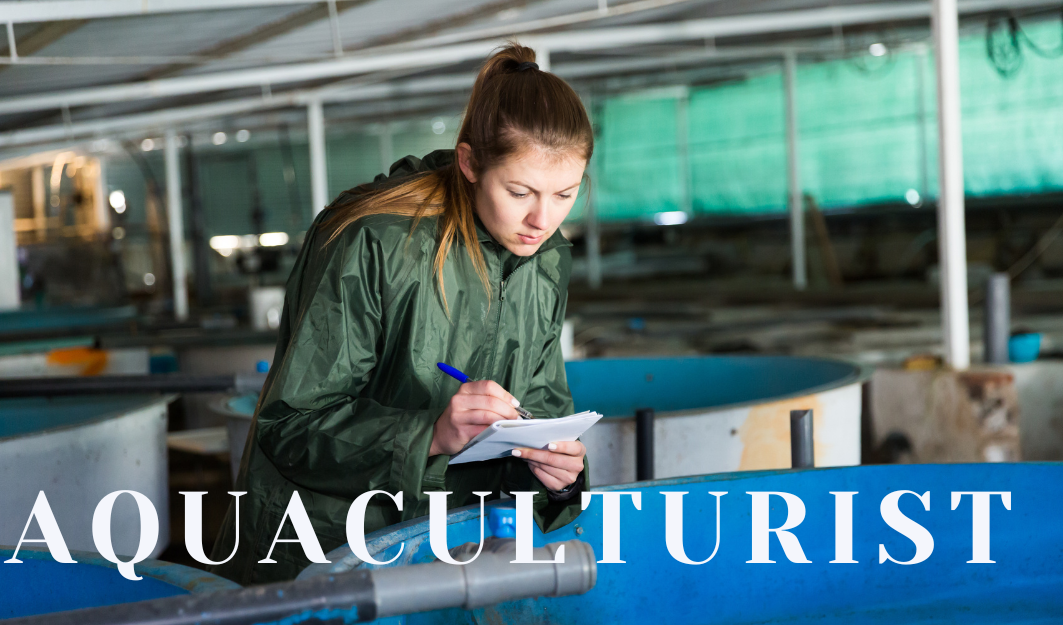Aquaculturist


Aquaculture aims to create economically and environmentally sustainable marine and aquatic resources for human use. Current aquatic farming practices focus on a wide array of organisms, from oysters to salmon to seaweed. Working as an aquaculturist is a dynamic job that involves both field and office work. In the field, aquaculturists monitor the health and behavior of organisms, maintain proper water quality and equipment, and feed stocks. In the office, they will carefully manage data, write reports, and order supplies. Aquaculturists may work for commercial farms, governmental institutes, research institutes, aquariums, or pharmaceutical companies.
High school coursework:
- Biology and chemistry - having a background in biology and chemistry will be helpful in understanding organism health and water quality
- Math - aquaculturists manage data to ensure sustainable practices
- Business - aquaculture is an agricultural business
Classes you could take in college/at Cal Poly:
Many colleges (including Cal Poly) offer classes all about fisheries practices and aquaculture.
- MSCI 438: Aquaculture
- MSCI 439: Fisheries Science and Resource Management
- EDES 406: Sustainable Environments
Ways to get experience:
- Volunteer at an aquafarm or fishery
- If your area has an aquafarm of any type or a fishery, they will more than likely be open to having volunteers help with feeding and cleaning duties.
- Get agricultural experience
- If you don’t have access to an aquaculture farm, consider working in traditional agriculture! A firm understanding of agricultural principles can be directly applied to aquaculture.